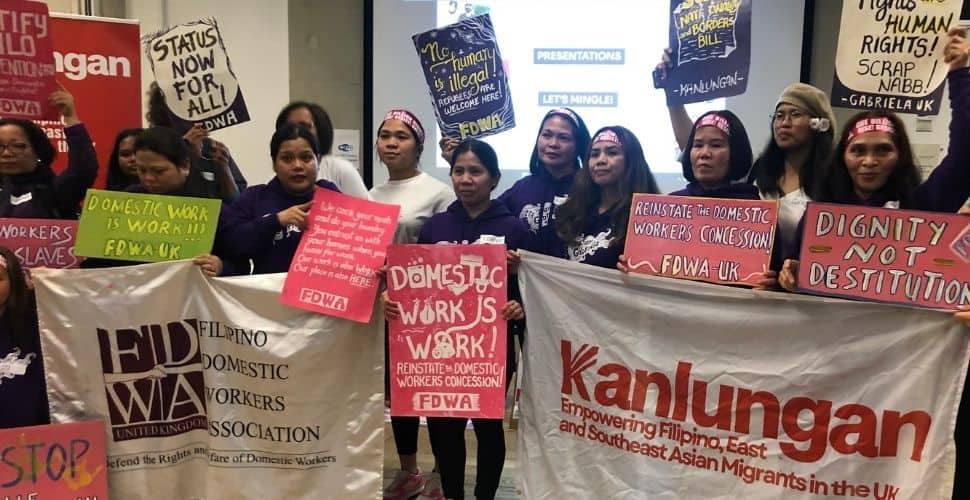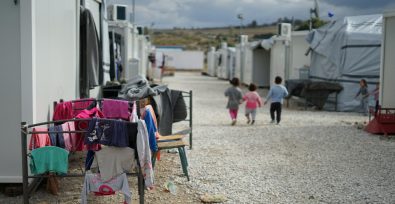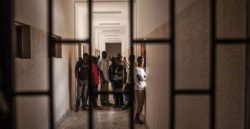Diplomatic immunity enables perpetrators to exploit workers without any fear of prosecution or punishment, until this week, when a court ruled to remove that entitlement.
Lawyers who brought the case called on the U.S. to follow the the U.K. Supreme Court’s lead, noting that their ruling is a world first.
Migrant domestic workers have long campaigned for better protection from exploitation. Although domestic work need not be exploitative, it is isolated and so unprotected.
Combined with the worker’s extreme dependency on an employer and a lack of rights, they are especially vulnerable to exploitation and abuse. This power imbalance is exacerbated when their employer is a diplomat, instead afforded special protections.
The Court itself recognized that the exploitation of migrant domestic workers by foreign diplomats is a significant problem, one that the Freedom United community actively campaigns to address.
The BBC explains the details of the case brought before the Court:
The case was brought by Josephine Wong, 30, who alleges she was forced to work for Khalid Basfar and his family in conditions of modern slavery.
Her lawyers say she was confined to the house at all times except to take out the rubbish, subjected to verbal abuse, and given only left-over food to eat when her employers were at home.
She alleges that she was made to work from 07:00 until around 23:30 every day of the week, with no days off or rest breaks, and that she was forced to wear a door-bell so her employers could summon her at any moment.
She alleges that after being brought to the UK from Saudi Arabia in 2016, she was not paid anything for seven months. She says she was then paid about £1,800 for six months’ work in one lump sum – a fraction of her contractual entitlement – and after that not paid again.
Ms Wong managed to escape in 2018 and brought a claim against Mr Basfar in an employment tribunal.
He argued that Ms Wong’s claim should be struck out on the basis of his diplomatic protection.
Despite the clear power imbalance between employers and workers in a domestic setting, governments have been slow to implement better protections as provided by the international standard, the Domestic Workers Convention, known as C189.
Around the world, there are at least 67.1 million domestic workers – millions of them children. Women make up 81% of national domestic workers and 73% of migrant domestic workers. If all domestic workers worked in one country, this country would be the tenth largest employer worldwide.
In April 2012, the U.K. government introduced a tied visa regime common across the Middle East, which prevented Overseas Domestic Workers from changing employers.
Freedom United launched a petition gathering 62,288 signatures, and a social media campaign. In partnership with the Voice of Domestic Workers, Kalayaan and Anti-Slavery International, we organized several public protests were held outside the Houses of Parliament.
The UK government agreed to end the employer tied visa system for overseas domestic workers, allowing ODWs to change employers and helping to reduce their vulnerability to exploitation. The government, however, did not agree to implement all the recommendations contained within an independent review they had commissioned, which would give domestic workers the best protection possible from slavery, including the opportunity to renew their visas so that they might benefit from the ending of the tied visa system.
Domestic work is an important source of employment but the people behind these numbers are too often invisible behind the doors of private households and unprotected by national legislation. This allows for the worst types of abuse often amounting to modern slavery.
Tougher rules to protect domestic workers are long overdue.








Freedom United is interested in hearing from our community and welcomes relevant, informed comments, advice, and insights that advance the conversation around our campaigns and advocacy. We value inclusivity and respect within our community. To be approved, your comments should be civil.